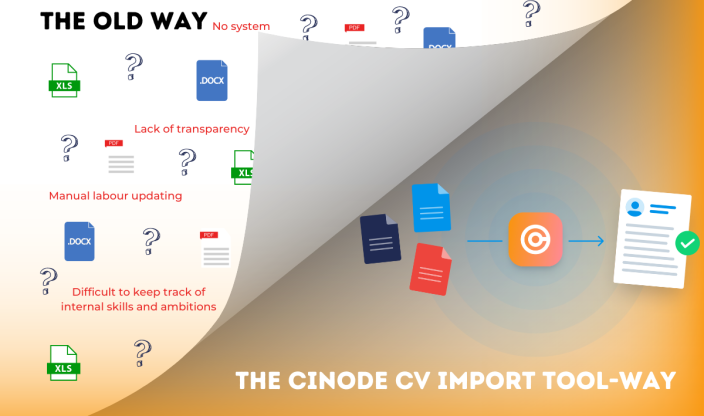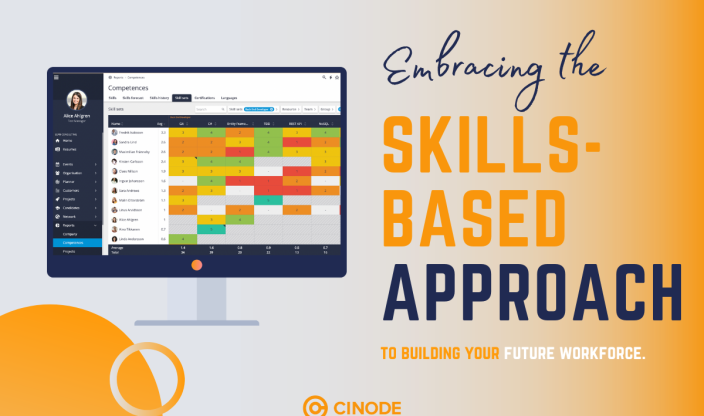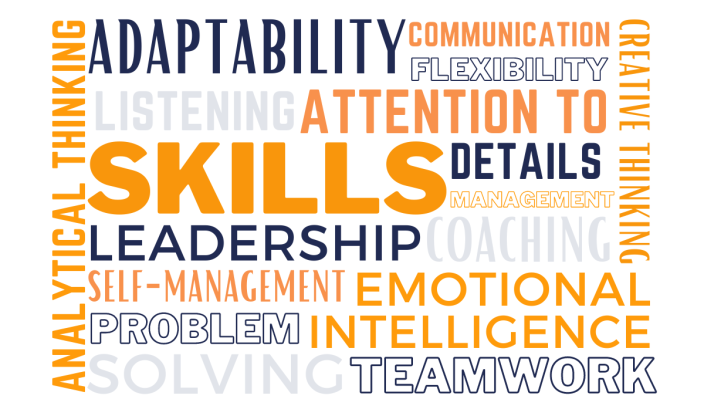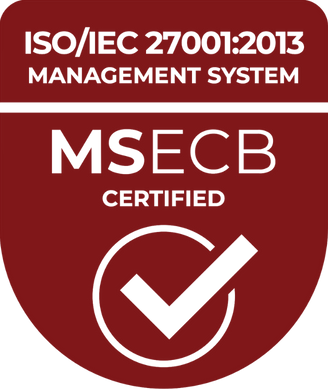What are the consequences of failing to get to grips with the skills gap?

Many companies experience difficulties in recruiting the right skills. The consequential defects of this are inevitable. But do you realise the consequences your organization risks coming up against if you fail to deal with the lack of skills, and fail to actively work to deal with the consequences?
Growth drops
A company that fails to keep up with technical development will sooner or later be hit by worsening quality and lack of efficiency in the day-to-day work. This resulting in reduced growth, inhibited innovation progress, and hindered development work.
Lost tasks and failed projects
Businesses that do not have control over their collected skills have no control over how they divide up competences to the best advantages. Who can do what and which employees are best suited to a certain task/project? How do you match up your personnel, candidates, and subcontractors according to competence, ambition, and accessibility.
If managers and executives lack knowledge regarding personnel competences they risk losing tasks to competitors and income fails.
Problems with organising your team
Not being able to assess your collective competence and competence gap affects the company’s ability to organise the team. A company that grows fast might lack the right tools to nurture work well and fail to match the right talent with the right task. This will bring about considerable challenges during company growth. In addition, it is time-consuming to maintain the handling of CVs, project pipelines, and deliveries that are spread out over various systems and hinder possibilities of continuous updating.
Helping the competition
When such factors as growth, innovation speed, and development are put on the brakes, the competition will gather up important market segments. Attraction power is crucial to customer choice. When this fades there is a real risk that the client will turn to the competition instead.
Personnel turnover increases
In the increased competition over existing workforces, a natural consequence is, that a branch over a long period of time comes up against a lack of competence. This in turn leads to still higher personnel turnover and an increased need for recruiting, at the same time as making sure of retaining existing talent. A situation that has never been so tough as it is today.
When staff leaves their jobs the company loses the competence needed to continue with day-to-day work and make this friction-free. An organisation with limited resources will find themselves working in a shaky environment in the shape of high workloads, operational alterations, and stress, a situation most likely lead to still more layoffs.
Increasing costs and recruiting the wrong people
High personnel turnover implies large recruiting costs. Of course, an important factor in competence supply is to be able to recruit the correct talent for your company. Recruiting the wrong people can on the other hand can be expensive. The average cost of incorrect recruiting can be as high as SEK 700 000:-. On top of this should be added several concealed expenses, such as incorrect recruiting influenced by colleagues. Negative effects on customer relations and being unable to meet targets and fixed budgets.
Or it could even be that such competence can already be present within the organisation, and if so recruiting might not be needed?
Risk of stress and burnout increases
Yet another consequent effect is that a glaring lack of competence increases the workload of personnel. Stress and burnout amongst personnel increases, as does the risk of making mistakes. This situation creates an unsound working environment that becomes untenable in the long run.
Inability to meet demand
Lack of competence means there is insufficient labour to carry out the work required. Tasks are unable to be met and quality drops. Maintaining good quality is crucial to both income and customers and to being able to maintain a good reputation in the field.
Deficient leadership
Executives and managers who lack the tools needed to handle the company’s collected competence complicate the work of making skills and competences visible. In which case they can neither quickly nor effectively match up personnel with the right task. This reduces the opportunities for catering to individual personal ambitions and weakens engagement within the company.
What can the company do to deal with lack of competence?
Access to the right competence at the right time today is crucial to success.
Using smart tools in Skills Management results in simple, fun, and profitable work within the company’s skills. You can identify the competences over which you preside and which you lack. Consequently, you are able to make the right decisions concerning upskills, reskills, and recruiting.
Cinode is the leading platform in Skills Management, helping you to close the competence gap so you can be properly digitally equipped to meet tomorrow’s market.
Free webinar on 11th of November
Would you like to know more? On the 11th of November, we are introducing a webinar about how to work with your collective competences in a whole new way. We shall explain how you can identify the competence gap and how to take the right decisions for upskills, reskills, recruiting, and consulting purchasing.
Webinar 11th Nov - How to identify a skills gap and work strategically with your skills supply.
Mattias Loxi, Co-Founder / CMO
Mattias Loxi, Co-Founder / CMO
You may also like...
All posts
Jun 28 2023 · Entrepreneurship, Skills Management
Bridging the gap between Swedish companies and Polish IT talent

Apr 28 2023 · Cinode News, Skills Management
Easily create customized CVs with Cinode’s CV import tool

Apr 20 2023 · Consulting, Sales, Skills Management
How do you work more skills-based within your company?

Apr 04 2023 · Cinode News, Skills Management
5 Easter eggs for eggstra effective Skills Management

Mar 23 2023 · Consulting, Sales, Skills Management
“If you sell competence, you always need to be on top of how you develop your skill set”

Feb 22 2023 · Skills Management
How can Skills Management help your company?

Feb 16 2023 · Skills, Skills Management
How to identify and recruit transferable skills

Feb 07 2023 · Skills Management
Flying start 2023 – how to succeed with your skills growth plan

Dec 21 2022 · Skills Management
Latest in Skills Management from the past year

Dec 08 2022 · Cinode News, Skills Management
This is how utilization works in Cinode (Video)

Dec 01 2022 · Cinode News, Skills Management
Add the right person to the right role with the right data (Video)

Nov 29 2022 · Skills, Skills Management
